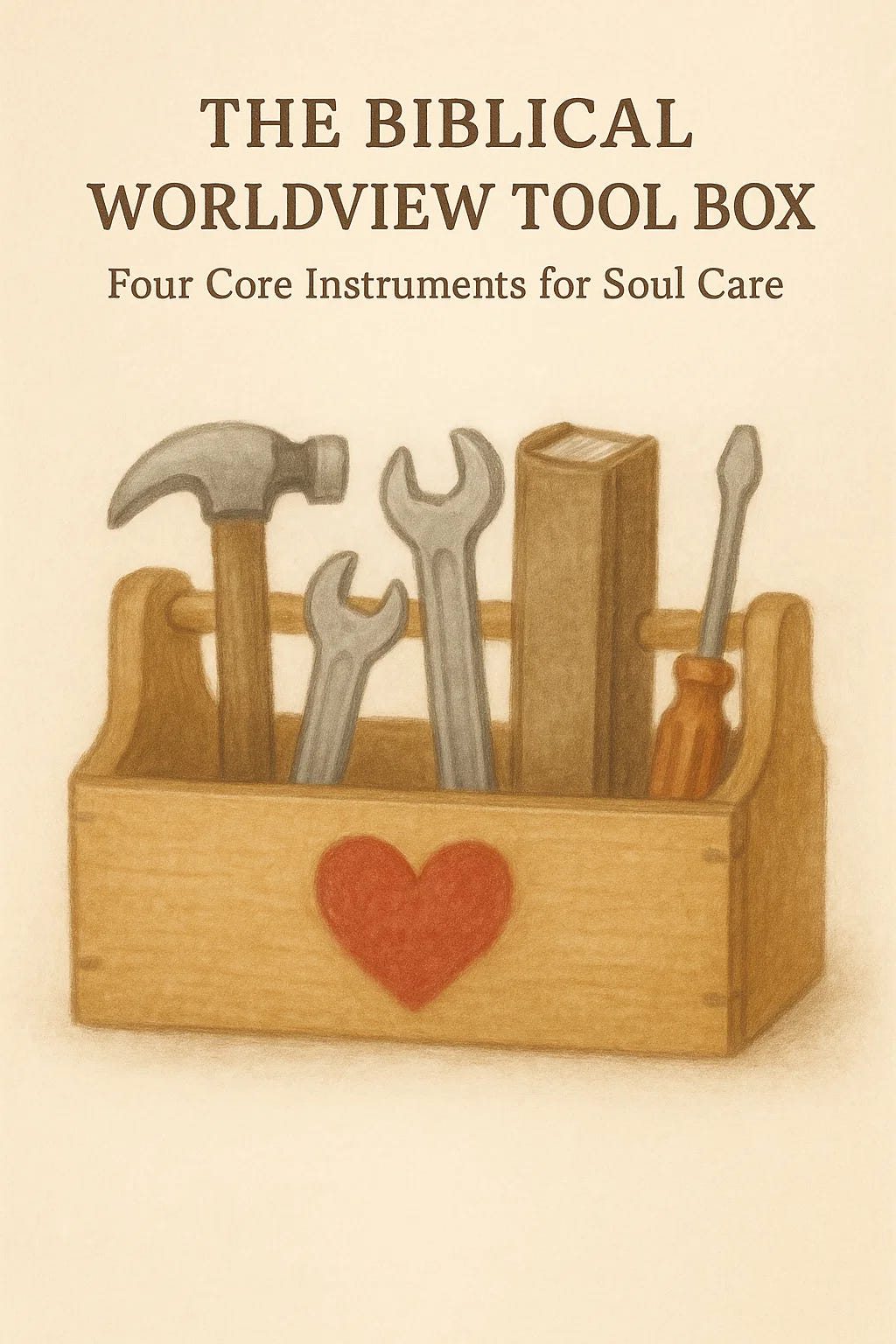Over the past weeks, we’ve explored why a biblical worldview matters, what it is, and how God’s two “books” of revelation shape our thinking. We’ve seen how Scripture and creation work together to ground our identity and guide our understanding. Now it’s time to get practical: we’re opening up The Biblical Worldview Toolbox and uncovering four essential tools—metaphysics, epistemology, ethics, and socio-praxis—that every counselor needs in order to see reality clearly, test ideas wisely, love well, and build healthy community. Let’s dive in and discover how these core components equip us to minister with both truth and grace.
Seeing Reality Clearly (Metaphysics)
When someone asks, “What’s real?” the Christian answer is beautifully simple: God is, and everything else—our world, our stories, our struggles—flows from Him. As counselors, we remind people that their worth isn’t determined by performance or popularity but by the fact that they bear God’s image (Genesis 1:27). When you’ve got a solid metaphysical foundation—the conviction that a loving, all-powerful Creator holds history in His hands—suffering becomes part of a redemptive story rather than meaningless chaos.
Knowing What You Know (Epistemology)
“How do I know this is true?” you might wonder. We all live by assumptions—some drawn from culture, some from Scripture. A biblical epistemology says: look first to God’s Word, interpret creation through that lens (Psalm 19:1–4), and then let everything else line up behind it. For a counselor, equipping someone to test their thoughts against Scripture (Philippians 4:8) is like giving them a spiritual compass—suddenly, cognitive distortions and pop-psychology catch the light and reveal their flaws.
Loving Well (Ethics)
“When someone asks, ‘What should I do with my life?’ they’re really asking about ethics. Rather than piecing together a moral code from self-help mantras or shifting social trends, a biblical ethic points us to Romans 12:9-10: ‘Love must be sincere. Hate what is evil; cling to what is good. Be devoted to one another in love. Honor one another above yourselves.’ In counseling, helping clients swap self-centered ‘rights’ for these Christ-shaped responsibilities—sincere love, a hatred of evil, devotion, and humility—lays the groundwork for genuine, lasting change.
Doing Life Together (Socio-Praxis)
Finally, “How am I meant to live in community?” points us to socio-praxis—the outworking of beliefs in relationships and mission. The local church isn’t an optional extra; it’s God’s design for spiritual growth (Ephesians 4:11–16) and mutual care (Galatians 6:2). In counseling sessions, pointing someone toward authentic community—small groups, accountability partners, acts of service—often does more for lasting change than any technique or insight we bring alone.
The Syncretism Snare
Here’s where syncretism trips us up: it whispers, “Sure, mix in those secular ideas—positive psychology, New Age mindfulness, pragmatic pragmatism—alongside your Bible verses. What could go wrong?” The problem is, when you pull a thread like “everyone’s truth is equal,” you unravel the whole tapestry. Borrowed concepts that deny sin, minimize divine sovereignty, or redefine love on human terms will subtly warp every one of those four components above. You end up serving two masters—Christ and the culture.
So for counselors, teaching people to spot syncretistic fusions is crucial. We ask questions like, “Where did this idea come from?” “Does it fit under Scripture’s authority, or does it override it?” The four-question grid (What’s real? How do we know? What’s right? How do we live together?) becomes a diagnostic tool: if something doesn’t line up in any one area, it’s a red flag that worldly thought has crept in.
Wrapping Up
A biblical worldview isn’t a dusty philosophy syllabus; it’s a living framework that shapes how we see God, ourselves, others, and our mission in the world. When you ground your counseling in these four areas—and stay vigilant against the subtle poison of syncretism—you’re not just offering coping strategies; you’re inviting people into the grand story of redemption, equipping them to navigate truth and error with confidence, love, and hope. Next time, we’ll step through a real-world case study and see how this all comes together in a counseling session. Consider becoming a paid subscriber for case study content on a number of topics.





Great job Margy!